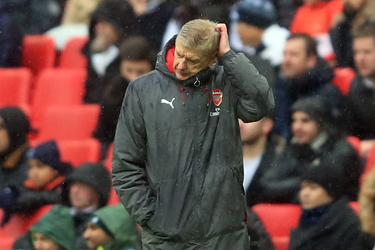My eyebrows were raised earlier this season when Arsene Wenger came up with a new way of measuring his players’ determination. When speaking about the commitment of Alexis Sanchez as the player entered the final year of his contact, the Arsenal manager stated that he actually believed the player would be more committed than if he were on a longer deal, citing something he described as the ”hunger index”, to assess their amount of dedication to produce their best.
It’s not a measuring tool I am aware that Opta have adopted, but if they had, I wonder what they would have made of some of Arsenal’s performances, especially away from home, this season. I’m not sure too many fans would back the team to finish in the top four after that performance – although if you are interested in betting on Premier League games or reading previews ahead of matches, then check out Odds Changer for daily betting tips as well as weekly articles and quizzes.
In the aftermath of the second half of the North London derby at Wembley last weekend, it was pointed out to me that when Pep Guardiola was the manager at Barcelona, the policy when possession was lost was to win the ball back in six seconds or less. This manifested itself as a ‘hunt in packs’ approach to the player on the ball, cutting down his options, and often a successful tactic in regaining possession. When Barcelona, then Champions League holders, visited Arsenal in March 2010, this was all too evident in a fizzing first half, which somehow ended goal-less thanks, believe it or not, to a stunning performance by Manuel Almunia in the Gunners’ goal. Arsenal were cut to ribbons, but the Catalan goals did not arrive until after the interval.
Now that Pep Guardiola is in his second season in the Premier League, one can see the same signs of intensity in his Manchester City side. The workrate is above and beyond that we see from Arsene Wenger’s teams, this in spite of the latter’s attempts to imitate the Spaniard’s style for several years, which led to the Gunners being labeled ‘Barcelona-Lite’ for a while.
Guardiola’s gift, aside from what seems to be a better use of tactics and coaching, is the ability to motivate millionaires. Certainly, being able to afford any player helps (although losing the aforementioned Sanchez to Manchester United showed us that even at the Etihad there are limits), but once you have them, you need to keep them focused, hungry (as perhaps in Arsene’s index?) and motivated to work hard. Not being certain of your place in the starting eleven certainly helps in this regard, as the vast majority of players prefer to play rather than sit on the sidelines. So players are not only playing to their optimum, they cannot be complacent about their place in the starting eleven.
Looking at Arsenal, this does not seem to be the case. After the interval against Tottenham, Mauricio Pochettino’s side seemed, to paraphrase Theo Walcott after the horrendous 3-0 away defeat to Palace last April, to want it more. They were far quicker to close down their opponents than Arsenal’s players when Spurs had possession, allowing them less space and time. It’s interesting that one of the reasons the players at London Colney stick to very strict training times – never overdoing it (no extra training is allowed to work on individual weaknesses) – is that the players are in peak physical condition.
They probably are as fit as Spurs, which leads us to wonder about the motivation in the team, and whether the manager is getting the best out of his players. And if not, why not? I wonder how the manager would explain the ‘hunger index’ of his current team, as right now, it’s not looking very high to these eyes. North London derbies, including many played during the Wenger era, didn’t use to feel like this…








